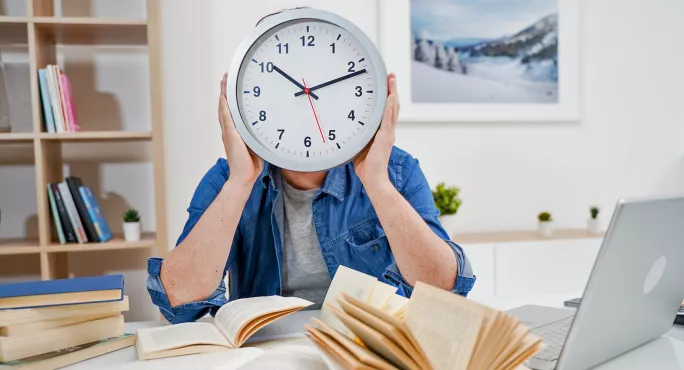GCSEs 2021: Don’t ‘test, test, test’, teachers told

Ofqual has warned teachers not to use additional time with students before they submit GCSE and A-level grades in late June to do “tests and tests and more tests”.
Ian Bauckham, who chairs the regulator, told Tes that while schools lacking evidence for students’ grades should use the six weeks before 18 June - when grades must be submitted - to build up evidence for grades, the time should not be used for testing alone.
GCSEs 2021: Should schools be running full mock exams?
Exams 2021:
- Teacher-assessed grades get green light
- ‘Excessive grade inflation’ warning
- Teachers relieved of appeals burden
“I would say if you’ve really got no evidence at all, you’ve got no formal written work in the second year of a GCSE or A-level course, probably you should be using this time you’ve got now to combine some formal assessment tasks with your teaching,” Mr Bauckham said.
GCSEs and A levels 2021: Don’t spend too much time on formal assessment, says Ofqual
“But let me just be clear...I’m not saying use all this time to do tests and tests and more tests. I’m saying use it to teach but also use it to make sure that you generate evidence that you can rely on when you come to make your decisions about grades,” he added.
“That is precisely one of the reasons why we required examination boards to release a wide range of possible assessment resources for teachers to use in precisely circumstances like that. So I would encourage teachers to carry on teaching, but use a small, proportionate, reasonable amount of time to administer some of those assessments in order to generate the evidence that they need to make the grading decisions.”
Mr Bauckham said that in a normal year “GCSEs are just beginning to get underway at precisely this point” and that the idea behind submitting grades in late June was “to clear as much space as possible during this time”.
“I know there’s been a little bit of media coverage about schools who allegedly - according to the media coverage - are doing lots and lots of tests and formal assessments at the moment,” he added.
“I don’t want to make any comment about any specific school because I don’t know exactly what’s going on there, but this time was cleared precisely to allow teachers to teach as much as possible.
“But clearly if they’re going to be making a decision about grades in the interest of fairness to everybody, there has to be some evidence behind that grade as well.”
Some schools have argued that running full mock exam series is the only way to generate robust evidence for grades this year.
Vicky Bingham, headmistress of South Hampstead High School, an independent girls’ school in North London, said: “When the JCQ [Joint Council for Qualifications] guidance says quite clearly that certain types of evidence are more robust, and when you take into account the noise in school corridors, I don’t think it’s surprising or unreasonable that schools are choosing to use this type of assessment.”
But Shaun Fenton, head of the independent Reigate Grammar School, said: “I believe that if it was possible to base grades on exams then we should have used the usual summer exam series.”
A spokesperson for Ofqual said: “We expect teachers to use a range of evidence to arrive at a grade, and to use their professional judgement when deciding how to assess and grade each student.
“This evidence might include work the student has already completed, mock exam results, homework or in-class tests.
“The use of the additional assessment materials is optional. Teachers have flexibility to decide if and how to use them, including whether to assess students under exam conditions.”
Register with Tes and you can read two free articles every month plus you'll have access to our range of award-winning newsletters.
Keep reading with our special offer!
You’ve reached your limit of free articles this month.
- Unlimited access to all Tes magazine content
- Save your favourite articles and gift them to your colleagues
- Exclusive subscriber-only stories
- Over 200,000 archived articles
- Unlimited access to all Tes magazine content
- Save your favourite articles and gift them to your colleagues
- Exclusive subscriber-only stories
- Over 200,000 archived articles
topics in this article



